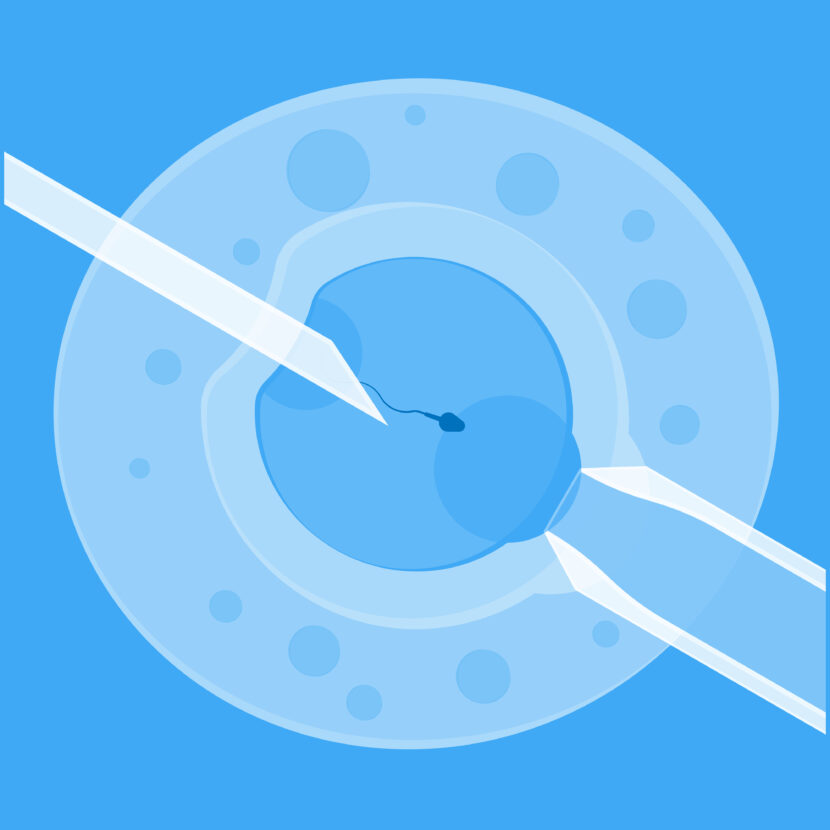The egg-freezing procedure has grown in popularity among many women. But even with all the popularity, some women have concerns about the procedure, like its cost and success.
In this article, you will find nine common concerns about egg freezing.
- What is the best age to freeze eggs?
You are most fertile when you are in your twenties. Fertility begins to decline after the age of thirty and is significantly reduced after the age of forty.
So, the best time to freeze your eggs is between the late twenties and early thirties.
However, the best way to understand your chances of success is to get a complete fertility assessment and speak with a fertility specialist.
- Can I freeze my eggs if I’m over 40?
Yes, it is possible. But egg production declines with age, so you could have fewer eggs available for freezing. Most women are advised to opt for egg freezing before they turn 35 to increase their chances of becoming pregnant.
If you want to postpone fertility after the age of forty, doctors may advise using donated eggs from a younger woman.
- How does egg freezing work?
The process includes the following steps:
- Step 1 – Ovarian Stimulation
The first step in the egg-freezing process is ovarian stimulation, which involves using fertility drugs daily for 10 to 12 days to increase the number of developing eggs. Following the start of those medications, your doctor will check your progress using bloodwork and ultrasound.
- Step 2 – Egg Retrieval
After around a week or two of hormone treatments, the eggs are then retrieved once the ideal amount of mature eggs has been developed. The egg retrieval procedure lasts approximately 10 to 30 minutes and is done under mild anesthesia. To remove eggs, the doctor uses ultrasound to guide a needle through the vagina to the ovarian follicle containing the egg.
- Step 3 – Maturity Evaluation
Once retrieved, the eggs are evaluated for maturity, cleaned, and frozen at -196 degrees Celsius before being stored in liquid nitrogen-cooled cryopreservation tanks.
- Step 4 – Thawing and Fertilising
When you are ready to try to conceive, the frozen eggs are thawed and fertilized by injecting sperm into the egg (ICSI).
- How much does it cost to freeze your eggs?
The egg freezing cost in India ranges between 150000 and 170000 INR, which includes all fees associated with the IVF protocol, such as those for egg retrieval and subsequent freezing procedures, as well as medications and injections used to stimulate the ovaries.
- What are the success rates for egg freezing?
Egg freezing is a new procedure, and success rates are often unpredictable. However, success rates are higher if the woman’s eggs are extracted before age thirty.
Success rates may also differ between fertility clinics (based on how the retrieval, freezing, storing, and thawing procedures were carried out), so it is essential to conduct thorough research before choosing one to ensure your best chance of success.
At Apollo Fertility, we understand how stressful getting pregnant can be. Our team of experts will help you through the entire procedure and value your mental well-being just as much as the clinical standards we follow.
- How long can eggs be stored?
The frozen eggs are usable after freezing and retain their quality for up to ten years.
- How many eggs should I freeze to have a successful pregnancy?
A certain number of eggs that can be stored depend on the woman’s age. Six out of every eight eggs will survive the freezing and thawing process. The likelihood of pregnancy from these six eggs ranges from 32% to 18%, depending on the woman’s age when she freezes her eggs.
Therefore, 30 to 40 eggs must be stored to give a woman a reasonable chance of becoming pregnant, which requires a woman to undergo 2-5 treatment cycles. Having a large number of eggs in reserve, however, does not always guarantee a pregnancy.
- What factors can impact success with egg freezing?
Some factors that can impact your success with egg freezing include:
- Age 35 or above
- Low egg quality
- Low ovarian reserve
- Lifestyle factors, such as diet or weight
- Smoking or drinking alcohol
- Your genetics
- Existing disorders or diseases
- Poor ovarian response to stimulant medications
- What are some common side effects of egg retrieval?
Some most common side effects of egg retrieval include:
- Feeling of fullness
- Constipation
- Bloating & cramping, especially in the pelvic area
- Breast tenderness
- Vaginal discharge
- Pain at the injection site
- Anxiety about the process
Although rare, some women might develop ovarian hyperstimulation syndrome (OHSS) when their ovaries strongly react to fertility medications. Some of its symptoms are rapid weight gain, severe abdominal pain, persistent and severe nausea, and vomiting, blood clots, decreased urination, shortness of breath, and an enlarged or tight abdomen.
With more and more couples planning to conceive at an older age, fertility preservation is becoming more common. Women are increasingly choosing egg freezing since the chance of a successful pregnancy reduces with age.
We hope the above information will help you take an informed decision.
